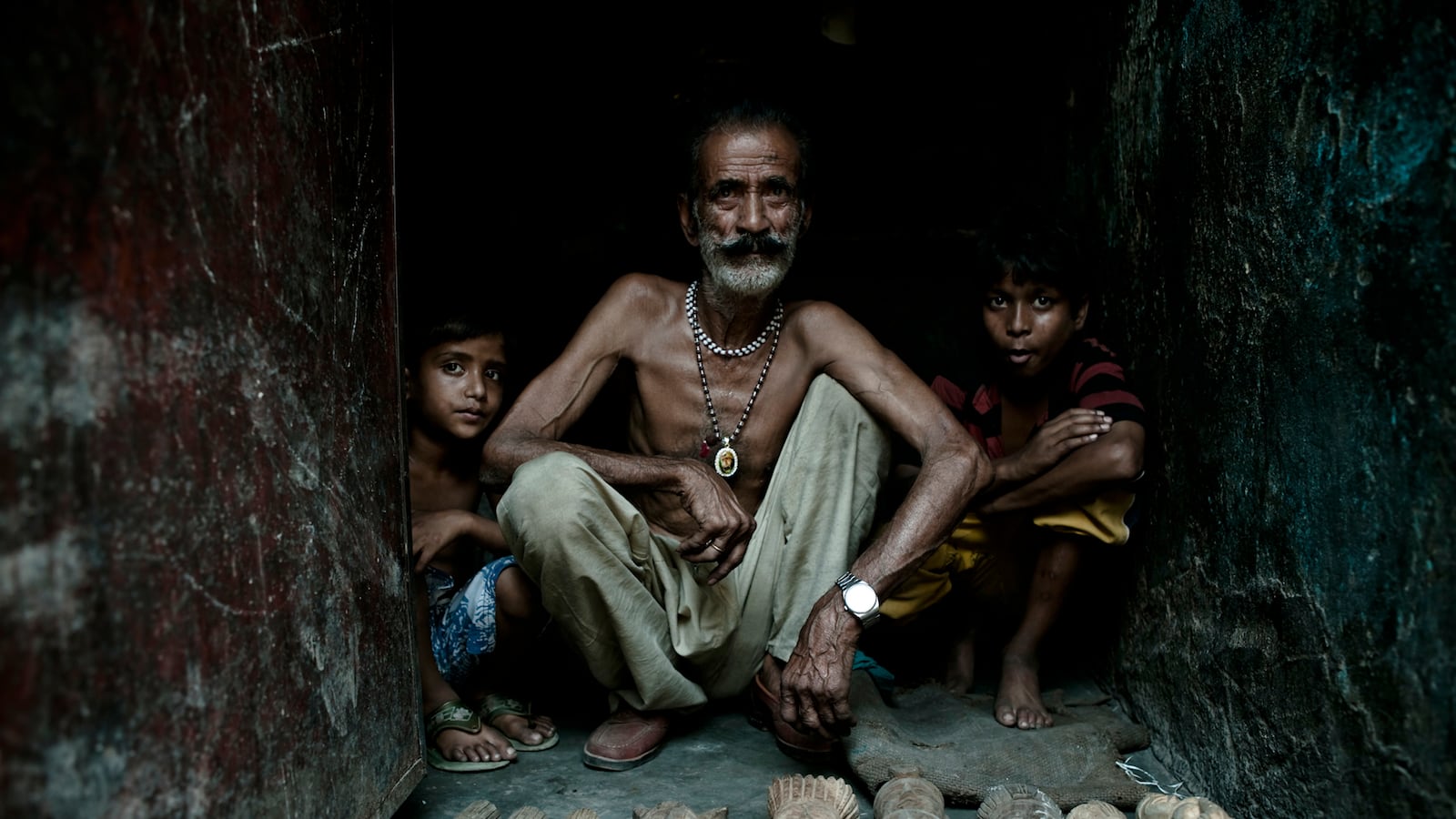“But no, I must stop all this, and tell the story as simply as possible: while troops chased arrested dragged magicians from their ghetto…while bulldozers moved forwards into the slum, a door was slammed shut…but not all the magicians were captured; not all of them were carted off…and it said that the day after the bulldozing of the magicians’ ghetto, a new slum was reported in the heart of the city.”

It was these words in Salman Rushdie’s Booker Prize-winning Midnight’s Children that first brought us to New Delhi’s Kathputli Colony, the legendary slum of magicians, acrobats, and puppeteers. Midnight’s Children captured the first time the slum was destroyed, in the ‘70s during Indira Gandhi’s Emergency, but like a futile game of whack-a-mole between artists and the government, Kathputli popped up again just a few months later.
In 2008 it was announced once again that Kathputli would face demolition, but this time something was different: in exchange for the sprawling Kathputli land, the government was now offering the artists colony free housing in 20-story high-rises.
When we first traveled to Kathputli in 2011, we faced a colony not only in external conflict with the Delhi Development Authority but also an internal conflict with itself—about what it is and what it wants to be. Our film is not just about developers displacing a slum of artists; it’s about a new culture replacing the old traditions.
The main character in Tomorrow We Disappear is Puran Bhat, a world-renowned puppeteer, winner of India’s National Award for Traditional Arts, and one of Kathputli’s original settlers. There are two moments in the film we’d like to discuss, one prominent and one subtle, where Puran embodies the colony’s larger existential dilemma.
“Are we artists or are we poor people?”
The first moment is when Puran realizes that some artists in Kathputli want to sign away the rights to their land and move into transit camps. Slouched in his puppet room, he stares into the camera and asks, “Who are we? Are we artists or are we poor people? We have no idea.” If they’re artists, the stewards of India’s traditional culture, of course they shouldn’t move into the cramped 10’ x 10’ transit camp homes. They make 15-foot puppets, they walk around on stilts, they spit fire, they drink and sing and play drums and harmonium into the night. “For so long we were roaming freely. Now they want to take our lives and put them in a box,” Puran says.
RELATED: Inside India’s Legendary Kathputli Slum (PHOTOS)

But if Puran is just a poor person, he—alongside Kathputli’s 3,300 families—should accept the government’s help, move into the camps and eventually take the flats.
“Introducing the iPhone 4s…”
The second moment was captured the morning after Puran’s breakdown in the puppet room. He’s getting dressed to visit the transit camps for the first time, when a commercial for Apple’s iPhone 4s comes on the television.
In his excitement, we see why the battle between old and new is so confusing. Puran, a traditional artist who’s written countless letters to the government and led cavalcades of puppet protests through New Delhi’s streets, watches a simple iPhone commercial, and he can’t help but be amazed.
This gets at the real difference between what happened to Kathputli in Midnight’s Children and what’s unfolding now: the government is offering them the possibility of something new and maybe something better. For the first time, Kathputli’s artists will have houses with running water and proper drainage, and electricity that’s not stolen from an adjoining neighborhood’s power grid. They’ll have legal permanent housing, not tinsel and brick homes that can be up-and-moved at the government’s discretion (squatter’s rights be damned).
Instead of forcing the artists to leave, they’re asking them to assimilate. It may come at the risk of losing the old ways, but it could also mean an easier life for their children. And at least for now, it feels like a choice.





